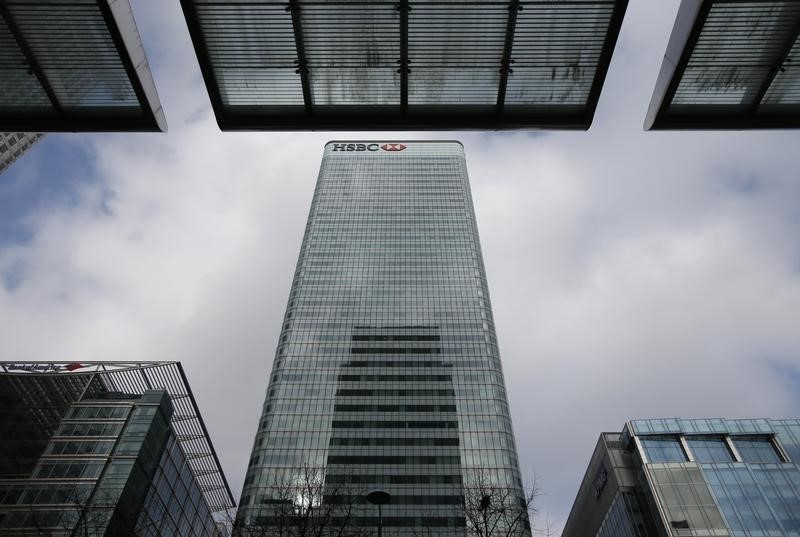By Jonathan Stempel
(Reuters) - A federal judge has ordered the release of a report detailing how well HSBC Holdings Plc (L:HSBA) has complied with anti-money laundering requirements imposed by U.S. regulators when the British bank was fined $1.92 billion three years ago.
Thursday's order by U.S. District Judge John Gleeson in Brooklyn is a defeat for HSBC and the U.S. Department of Justice, which complained the release could make it easier to launder money, including for terrorism, and discourage cooperation with law enforcement.
"This case implicates matters of great public concern and is therefore one which the public has an interest in overseeing," Gleeson wrote, citing the public's constitutional right of access under the First Amendment.
Gleeson gave HSBC and the government until Feb. 12 to propose redactions of details that could threaten HSBC employees' privacy or help criminals exploit weaknesses in the bank's controls.
"We regret this decision and are considering our next steps," HSBC spokesman Rob Sherman said.
A spokeswoman for U.S. Attorney Robert Capers in Brooklyn declined to comment.
The December 2012 accord was negotiated by Capers' predecessor, Loretta Lynch, who is now U.S. attorney general. It resolved charges that HSBC had become a "preferred financial institution" for Mexican drug cartels and other money launderers and conducted transactions for customers in several countries subject to U.S. sanctions.
As part of a five-year deferred prosecution agreement, HSBC agreed to monitoring by former New York prosecutor Michael Cherkasky, now the executive chairman of the compliance company Exiger.
Cherkasky's January 2015 report was to be kept under wraps but Hubert Dean Moore of Pennsylvania, who said he had been an HSBC mortgage customer before filing for bankruptcy, asked that it be unsealed so he could review whether HSBC "continues to engage in unsafe and unsound business practices."
HSBC said unsealing would discourage employees from cooperating with Cherkasky and could provide a "road map" for criminals seeking to launder money or finance terrorists. The Justice Department said the unsealing might stop people from cooperating in the HSBC case and others.
Gleeson said most of the report was too general to help money launderers and the government interest in keeping it under seal for law enforcement purposes was minimal.
The U.S. Federal Reserve and U.K. Financial Conduct Authority also wanted the report kept sealed.
Moore did not immediately respond to requests for comment.
The case is U.S. v. HSBC Bank USA NA et al, U.S. District Court, Eastern District of New York, No. 12-cr-00763.
